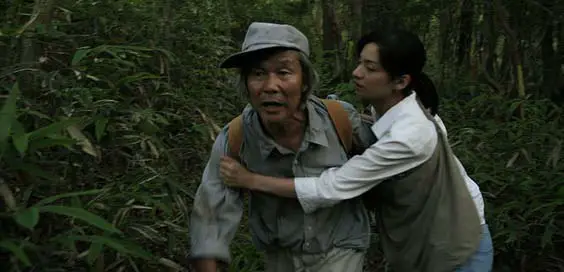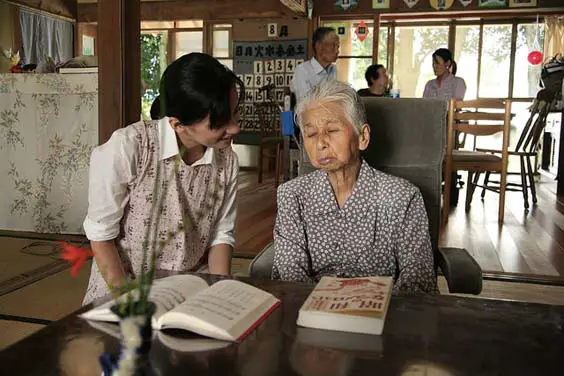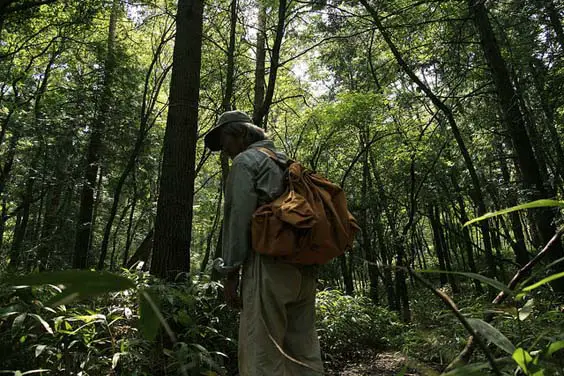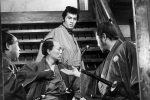The Mourning Forest (2007) – Film Review

Director: Naomi Kawase
Cast: Machiko Ono, Shigeki Uda
Certificate: 12
By Gregory Fishwick
Machiko is a young nurse, still coming to terms with the grief she feels for her young son who has died in an accident. She takes a job at a care home for the elderly where she makes the acquaintance of a widower, Shigeki, who suffers from dementia and who seems to be in constant mourning for his wife. Machiko warms to Shigeki and takes him out for a drive but when the car breaks down, he wanders into the nearby forest, leaving her little choice but to follow him. Shigeki seems to be pursuing some mysterious resolution to his grief, which, in turn, will have an enlightening effect on Machiko.
Naomi Kawase’s quietly fascinating film won the Grand Prix at the 2007 Cannes Film festival. Its focus on the natural world has led to comparisons with other “auteurs of nature” such as Terrence Malick. However, whereas it does share Malick’s meditative approach, here the forest is invested with a sense of mystery and even quiet threat, reminiscent of Werner Herzog’s Aguirre, the Wrath of God (1972) and Ruggero Deodato’s Cannibal Holocaust (1980). It is in the latent fear of the natural world that the awe in it lies.
“Warm and intriguing”
Location is key to the film’s effect. It is clear from the outset that the forest represents a kind of primitive mysticism; tranquil and mysterious, the place from which we came and maybe to where we need to return. In contrast, the city (which we only see briefly) is the place of Machiko’s grief and therefore chaos. It seems no coincidence that it is this particular nursing home that she chooses to work in; it is removed from the city, literally on the outskirts of the forest and there she can detach herself from civilisation and the company of people. Even more intriguing, the location of the home serves a bridge between the “civilised” and the natural world and therefore as a point of crossing over for those who inhabit it; a place of serenity between life and death.
Both the leads’ performances are sincere and committed and their unlikely relationship is warm and intriguing. Their journey into the forest is a curious one; as in Herzog’s and Deodato’s films, the deeper you venture in, the further removed from reality you become and the closer you come to a point of transfiguration. Needless to say, beautiful photography adds to the wonder of it all.
There are moments of strained artistry, particularly in some of the, albeit few, dialogue scenes (what’s unsaid is far more interesting than what is said in this film) and some points in the forest veer between being too literal and too heightened or abstract. But overall, as a piece of contemplative visual storytelling, The Mourning Forest is hauntingly effective and worth straying into.
- Stunning 1080p presentation on the Blu-ray, with a progressive encode on the DVD
- Choice of 5.1 DTS-HD or uncompressed PCM audio on the Blu-ray
- High-definition stills gallery
- PLUS: A booklet featuring a statement from Kawase made at the 2007 Cannes Film Festival, alongside stills from the film's production











